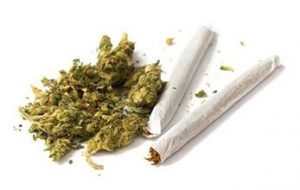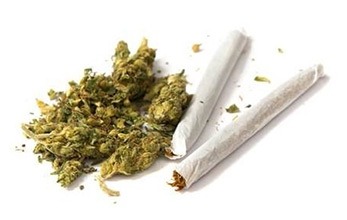


New York is poised the join the growing number of states that have legalized marijuana after state lawmakers reached a late-night deal to allow sales of the drug for recreational use.

Democrats who now wield a veto-proof majority in the state Legislature have made passing it a priority this year, and Democratic Gov. Andrew Cuomo’s administration has estimated legalization could eventually bring the state about $350 million annually.
“My goal in carrying this legislation has always been to end the racially disparate enforcement of marijuana prohibition that has taken such a toll on communities of color across our state, and to use the economic windfall of legalization to help heal and repair those same communities,” Sen. Liz Krueger, Senate sponsor of the bill and chair of the Senate’s finance committee, said.
At least 14 other states already allow residents to buy marijuana for recreational and not just medical use, but New York’s past efforts to pass marijuana legalization have failed in recent years.
The legislation would allow recreational marijuana sales to adults over the age of 21, and set up a licensing process for the delivery of cannabis products to customers. Individual New Yorkers could grow up to three mature and three immature plants for personal consumption, and local governments could opt out of retail sales.
The legislation would take effect immediately if passed, though sales wouldn’t start until New York sets up rules and a proposed cannabis board. Assembly Majority Leader Crystal Peoples-Stokes estimated Friday it could take 18 months to two years for sales to start.
Adam Goers, a vice president of Columbia Care, a New York medical marijuana provider that’s interested in getting into the recreational market, said New York’s proposed system would “ensure newcomers have a crack at the marketplace” alongside the state’s existing medical marijuana providers.
“There’s a big pie in which a lot of different folks are going to be able to be a part of it,” Goers said.
New York would set a 9% sales tax on cannabis, plus an additional 4% tax split between the county and local government. It would also impose an additional tax based on the level of THC, the active ingredient in marijuana, ranging from 0.5 cents per milligram for flower to 3 cents per milligram for edibles.
New York would eliminate penalties for possession of less than three ounces of cannabis, and automatically expunge records of people with past convictions for marijuana-related offenses that would no longer be criminalized. That’s a step beyond a 2019 law that expunged many past convictions for marijuana possession and reduced the penalty for possessing small amounts.
And New York would provide loans, grants and incubator programs to encourage participation in the cannabis industry by people from minority communities, as well as small farmers, women and disabled veterans.
Proponents have said the move could create thousands of jobs and begin to address the racial injustice of a decades-long drug war that disproportionately targeted minority and poor communities.
“Police, prosecutors, child services and ICE have used criminalization as a weapon against them, and the impact this bill will have on the lives of our oversurveiled clients cannot be overstated,” Alice Fontier, managing director of Neighborhood Defender Service of Harlem, said in a statement Saturday.
New York’s Legal Aid Society also hailed the agreement. “This landmark legislation brings justice to New York State by ending prohibition, expunging conviction records that have curtailed the opportunities of countless predominately young Black and Latinx New Yorkers, and delivers economic justice to ensure that communities who have suffered the brunt of aggressive and disparate marijuana enforcement are first in line to reap the economic gain,” the group said in a news release Sunday.
Melissa Moore, the Drug Policy Alliance’s director for New York state, said the bill “really puts a nail in the coffin of the drug war that’s been so devastating to communities across New York, and puts in place comprehensive policies that are really grounded in community reinvestment.”
Cuomo has pointed to growing acceptance of legalization in the Northeast, including in Massachusetts, Maine and most recently, New Jersey.
Past efforts to legalize recreational use have been hurt by a lack of support from suburban Democrats, disagreements over how to distribute marijuana sales tax revenue and questions over how to address drivers suspected of driving high.
It also has run into opposition from law enforcement, school and community advocates, who warn legalization would further strain a health care system already overwhelmed by the coronavirus pandemic and send mixed messages to young people.
“We are in the midst of the COVID-19 pandemic, and with the serious crisis of youth vaping and the continuing opioid epidemic, this harmful legislation is counterintuitive,” said an open letter signed by the Medical Society of the State of NY, New York State Parent Teacher Association, New York Sheriff’s Association and several other organizations March 11.
New York officials plan to launch an education and prevention campaign aimed at reducing the risk of cannabis among school-aged children, and schools could get grants for anti-vaping and drug prevention and awareness programs.
And the state will also launch a study due by Dec. 31, 2022, that examines the extent that cannabis impairs driving, and whether it depends on factors like time and metabolism.
“One of the things that no country in the world has and everybody wants is a way to quickly and easily figure out if someone’s high or impaired on cannabis,” University of Buffalo psychologist and professor of community health and health behavior R. Lorraine Collins said. “Research is being done to find systems that can do that. But I think those efforts will not come to fruition for awhile.”
The bill also sets aside revenues to cover the costs of everything from regulating marijuana, to substance abuse prevention.
State police could also get funding to hire and train more so-called “drug recognition experts.”
But there’s no evidence that drug recognition experts can tell whether someone is high or not, according to Collins, who was appointed to Cuomo’s 2018 working group tasked with drafting cannabis regulations.
“I think it’s very important that we approach that challenge using science and research and not wishes or unsubstantiated claims,” Collins said.
Collins pointed to a 2020 report from the American Civil Liberties Union that found that Blacks are almost four times more likely to be arrested for marijuana possession compared to Whites, based on FBI statistics.
“Every New Yorker should be concerned about how these laws will be implemented or how those ways of examining drivers will be implemented in different communities,” Collins said. “It’s not likely to be equal.”
The bill allows cities, towns and villages to opt out of allowing adult-use cannabis retail dispensaries or on-site consumption licenses by passing a local law by Dec. 31, 2021 or nine months after the effective date of the legislation. They cannot opt out of legalization.
Advertise or Publish a Story on Nationnewslead: Kindly contact us @ Nationnewslead@gmail.com Call or Whatsapp: 08168544205, 07055577376





